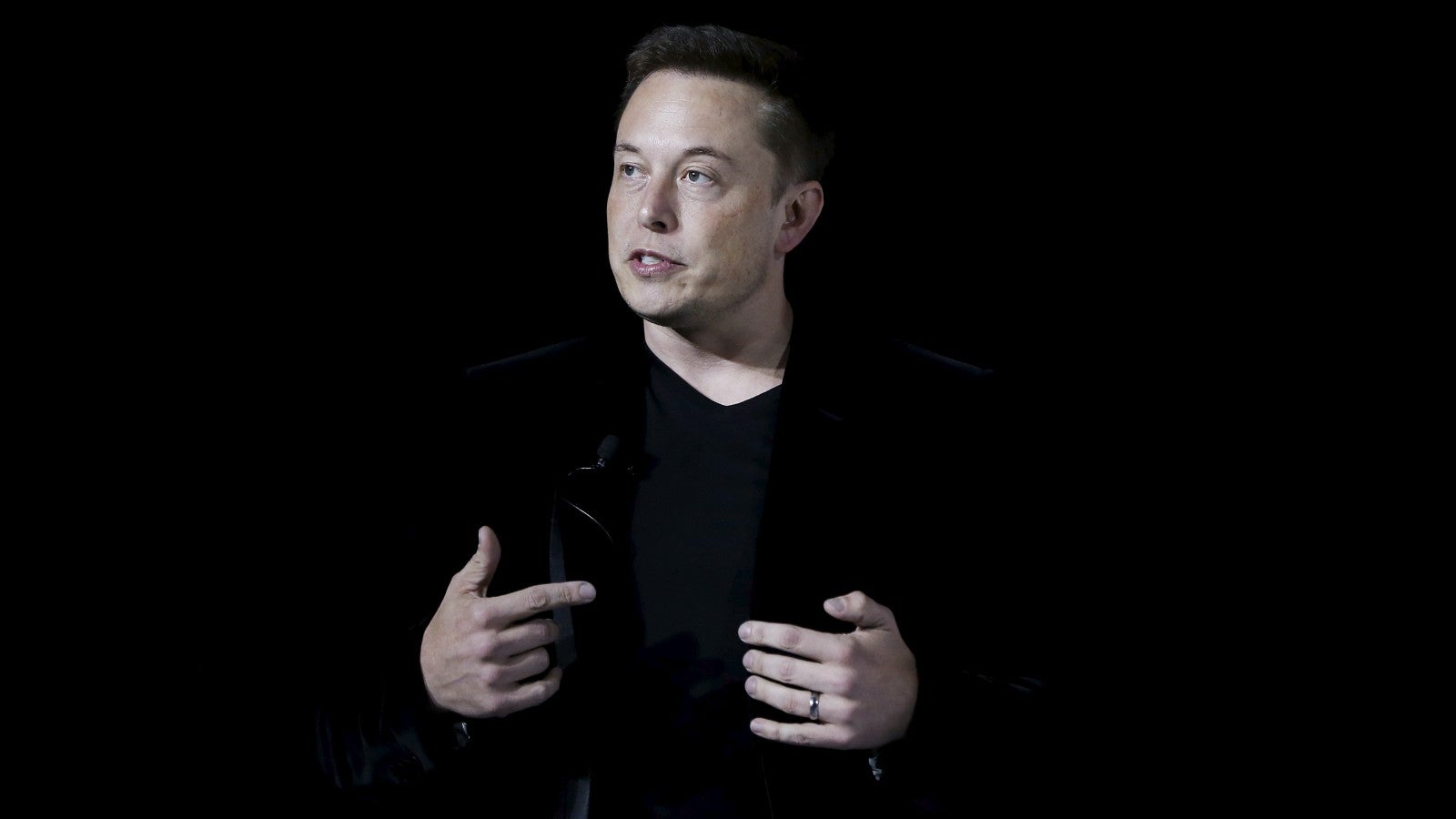Elon Musk says tax-free carbon is “the dumbest experiment in history”
We know Elon Musk cares about climate change: He’s spent years building up a car company that offers an alternative to gasoline and diesel vehicles; he’s a massive proponent of battery technology; and he’s chairman of a large solar energy company.


We know Elon Musk cares about climate change: He’s spent years building up a car company that offers an alternative to gasoline and diesel vehicles; he’s a massive proponent of battery technology; and he’s chairman of a large solar energy company.
Now, he’s taken the stage at the Sorbonne, speaking alongside the Paris climate conference, to call unequivocally for a tax on carbon.
“It is inevitable that we will exit the fossil fuels era, because at some point we will simply run out of carbon to mine or burn,” Musk said. “So the question is really when do we exit the era, not if. The goal is to exit the era as quickly as possible.”
A carbon tax could take several forms, including a scheme to cap and trade emissions, such as those that exist in the EU and California; or a straightforward payment for emissions, such as that which Australia introduced and then repealed.
Musk framed the choice as being between acting now or waiting, with the latter leading to “more displacement and destruction that all wars combined, ever.”
“That’s why I call it the dumbest experiment in history,” he said. “Why would you do this?”
In a healthy market, negative impacts on society would be taxed, lessening profits from a given activity, he explained. But in an unhealthy market—such as that for carbon emitters— the harm becomes an “untaxed negative externality.” Profits soar, with no check on harmful activity.
Musk called it a “hidden subsidy,” and he put a number on it: $5.3 trillion per year. (And that’s in addition to the $490 billion of subsidies already handed out to fossil fuel companies.)
To make the decision apolitical, he suggested, such a tax should be “revenue neutral”—balanced by lower taxes elsewhere, like sales tax or VAT, so only those using high levels of carbon paid a high tax.
It’s not the first time Musk has called for a carbon tax, but the timing—alongside a conference where international plans to combat climate change are actually being thrashed out—gives the call a higher profile than even Musk might have mustered on his own.